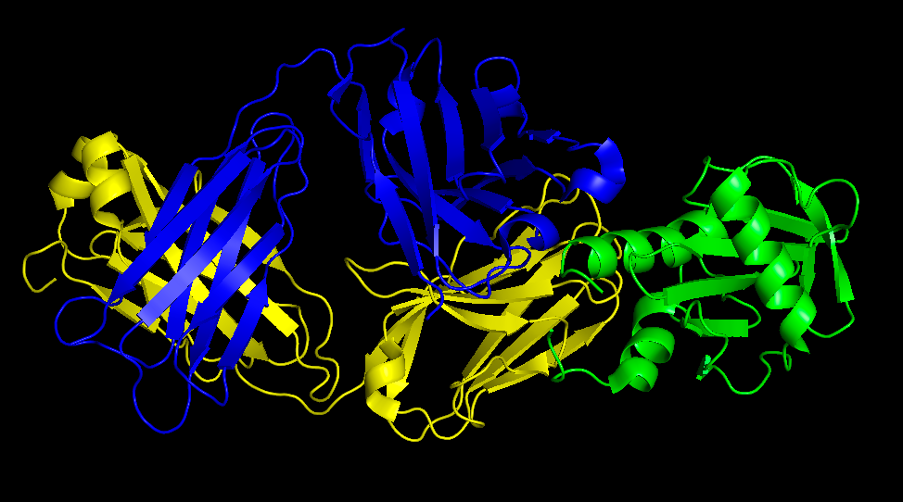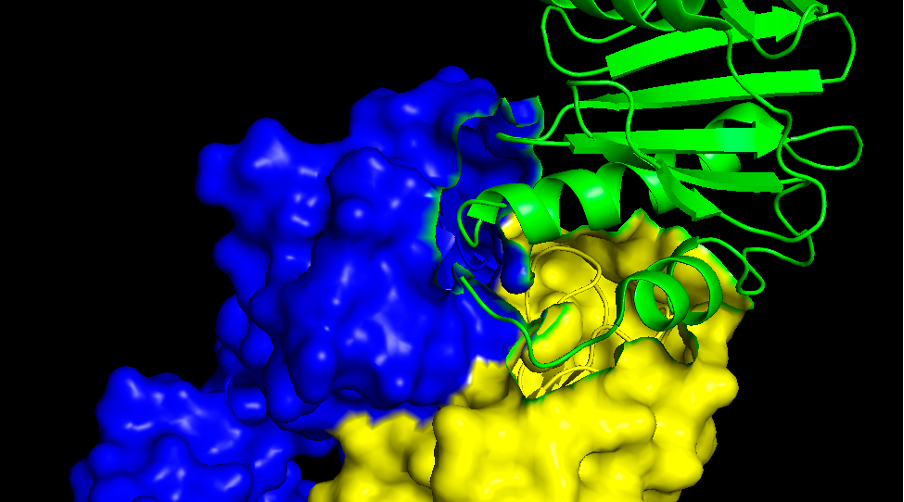Protein Structure answers37: Difference between revisions
Jump to navigation
Jump to search
No edit summary |
No edit summary |
||
| Line 20: | Line 20: | ||
:color blue, chain H | :color blue, chain H | ||
:color yellow, chain L | :color yellow, chain L | ||
''' Question 3.''' Provide a screenshot of the interaction surface. Which secondary structures of the allergen is the antibody interacting with: alpha helices, beta-sheets or loops? | ''' Question 3.''' Provide a screenshot of the interaction surface. Which secondary structures of the allergen is the antibody interacting with: alpha helices, beta-sheets or loops? | ||
[[File:Question3.png|1000px]] | [[File:Question3.png|1000px]] | ||
''Commands:'' | |||
:select antibody, chain H+L | |||
:cmd.show("surface" ,"antibody") | |||
In the allergen side is mostly alpha helices and loops. | In the allergen side is mostly alpha helices and loops. | ||
Revision as of 17:41, 9 October 2025
Protein Structure - Answers
Question 1. Look at the method X-RAY diffraction (Å). Which of the complexes is of better quality and why?
The PDB complex 7SBD, has the best resolution (lower Å).
Question 2. Provide a screenshot of the complex.
Commands:
- fetch 7SBD
- remove hetatm
- util.color_chains("(all)",_self=cmd)
- color blue, chain H
- color yellow, chain L
Question 3. Provide a screenshot of the interaction surface. Which secondary structures of the allergen is the antibody interacting with: alpha helices, beta-sheets or loops?
Commands:
- select antibody, chain H+L
- cmd.show("surface" ,"antibody")
In the allergen side is mostly alpha helices and loops. If you want to analyse the antibody surface too (which is called paratope) we might need to go back to the cartoon view again. There are three well known loops called CDR1, CDR2 and CDR3, both in the light (L) chain and in the heavy (H) chain.

